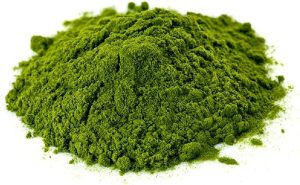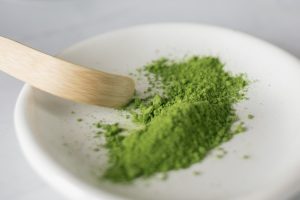
- Overview of Vitamin B1, a.k.a Thiamin or Thiamine
- Brief History of Vitamin B1, a.k.a Thiamin or Thiamine
- Functions of Vitamin B1, a.k.a Thiamin or Thiamine
- Recommended Daily Intake (RDI), Recommended Dietary Allowance (RDA), Adequate Intake (AI) or Reference Nutrient Intake (RNI) for Vitamin B1, a.k.a Thiamin or Thiamine
- Deficiency of Vitamin B1, a.k.a Thiamin or Thiamine
- Food Sources of Vitamin B1, a.k.a Thiamin or Thiamine and Where to Get It From
- Vitamin B1, a.k.a Thiamin or Thiamine and Its Interaction with Other Medications
- Websites and Articles to Delve into the Benefits of Vitamin B1, a.k.a Thiamin or Thiamine
- Disclaimer
Overview of Vitamin B1, a.k.a Thiamin or Thiamine
Vitamin B1, also known as thiamine, is a crucial water-soluble vitamin that plays a fundamental role in energy metabolism. It is an essential coenzyme in the conversion of carbohydrates into energy, particularly in the citric acid cycle.
Thiamine also supports nerve function and helps maintain a healthy cardiovascular system. Common dietary sources of vitamin B1 include whole grains, fortified cereals, legumes, nuts, and pork. Deficiency in B1 can lead to beriberi, a condition characterized by fatigue, muscle weakness, and nerve damage. Alcohol consumption can increase the risk of thiamine deficiency.
Supplementation may be necessary for individuals with certain medical conditions or dietary restrictions, emphasizing the importance of maintaining adequate levels of this vital nutrient for overall health and well-being.
To learn more about related Vitamin B2, click on the link.
Brief History of Vitamin B1, a.k.a Thiamin or Thiamine
The discovery of Vitamin B1, also known as thiamine, is attributed to the work of the Polish biochemist Casimir Funk in the early 20th century. In 1912, Funk isolated a substance from rice bran that could prevent beriberi, a disease prevalent in populations relying heavily on polished rice. He initially called this substance a “vital amine,” as he believed it was an essential compound for life.
Later, researchers determined that the active component in thiamine was not an amine but a thiazole derivative. The term “vitamin” was coined to encompass these essential organic compounds. Funk’s work laid the foundation for the discovery of other B vitamins. Thiamine was eventually synthesized in the 1930s, leading to a better understanding of its chemical structure and biological functions. This breakthrough significantly contributed to advancements in nutrition science and the prevention of deficiency-related diseases. Today, thiamine remains a crucial nutrient with vital roles in energy metabolism and overall health.
If you’d like to have more information regarding thiamine, you might as well check out this website
To learn more about related Vitamin B3, click on the link.
Functions of Vitamin B1, a.k.a Thiamin or Thiamine
Vitamin B1, also known as thiamine, plays several essential roles in the body:
- Energy Metabolism:
- Thiamine is a key coenzyme in the conversion of carbohydrates into energy through the citric acid cycle (Krebs cycle). It facilitates the breakdown of glucose and other sugars, enabling the release of energy that cells can use.
- Nervous System Function:
- Thiamine is crucial for the proper functioning of the nervous system. It participates in the synthesis of neurotransmitters, which are chemicals that transmit signals between nerve cells. Thiamine deficiency can lead to neurological symptoms, such as numbness, tingling, and muscle weakness.
- Heart Function:
- Thiamine contributes to the health of the cardiovascular system by supporting the proper functioning of the heart muscles. It is involved in the production of ATP, the energy currency of cells, which is vital for the contraction of the heart muscle.
- Gene Expression:
- Thiamine is involved in the expression of certain genes, influencing cellular processes and functions. It contributes to the maintenance of overall cellular health and function.
- Digestive System Support:
- Thiamine is necessary for the proper functioning of enzymes involved in the digestion of carbohydrates. It aids in the breakdown of food components, facilitating nutrient absorption in the digestive system.
- Stress Response:
- Thiamine levels may be affected during times of stress, and maintaining adequate levels of this vitamin is important for the body’s response to stress.
It’s worth noting that thiamine is water-soluble and not stored in large amounts in the body, so regular intake through a balanced diet is essential to meet the body’s requirements for these crucial functions.
To learn more about related Vitamin B5, click on the link.
Recommended Daily Intake (RDI), Recommended Dietary Allowance (RDA), Adequate Intake (AI) or Reference Nutrient Intake (RNI) for Vitamin B1, a.k.a Thiamin or Thiamine
The recommended daily intake for Vitamin B1 (thiamine) varies by age, sex, and life stage. The values provided below are general recommendations, and it’s essential to refer to the most recent guidelines from health authorities for the latest information. The values are typically given in milligrams (mg) per day:
- Infants (0-6 months): 0.2 mg
- Infants (7-12 months): 0.3 mg
- Children (1-3 years): 0.5 mg
- Children (4-8 years): 0.6 mg
- Children (9-13 years): 0.9 mg
- Males (14-18 years): 1.2 mg
- Females (14-18 years): 1.0 mg
- Males (19 years and older): 1.2 mg
- Females (19 years and older): 1.1 mg
- Pregnant females: 1.4 mg
- Breastfeeding females: 1.4 mg
These values are general recommendations, and individual requirements may vary. Pregnant and breastfeeding women have higher needs for thiamine due to increased energy demands. Always consult with healthcare professionals for personalized advice based on individual health conditions and circumstances. Additionally, it’s crucial to obtain nutrients from a varied and balanced diet, as opposed to relying solely on supplements.
To learn more about related Vitamin B6, click on the link.
Deficiency of Vitamin B1, a.k.a Thiamin or Thiamine
A deficiency of Vitamin B1, also known as thiamine, can lead to a condition known as beriberi. Beriberi is characterized by a range of symptoms that primarily affect the nervous system and cardiovascular system.
There are two main types of beriberi:
- Wet Beriberi:
- This form of beriberi primarily affects the cardiovascular system. Symptoms may include swelling (edema) due to fluid retention, increased heart rate, and difficulty breathing. In severe cases, it can lead to heart failure.
- Dry Beriberi:
- This form mainly affects the nervous system. Symptoms may include muscle weakness, numbness or tingling in the extremities, difficulty walking, and eventually muscle paralysis.
Thiamine deficiency can occur for several reasons:
- Poor Diet:
- Inadequate intake of thiamine-rich foods, such as whole grains, legumes, nuts, and pork, can lead to deficiency.
- Alcoholism:
- Chronic alcohol consumption can interfere with thiamine absorption and increase its excretion, leading to deficiency.
- Malabsorption Issues:
- Certain medical conditions affecting the gastrointestinal tract can impair the absorption of thiamine.
- Medical Procedures:
- Some medical procedures, such as bariatric surgery, can reduce the body’s ability to absorb thiamine.
- Increased Demand:
- Conditions such as pregnancy, breastfeeding, or illness may increase the body’s thiamine requirements, and a deficiency can occur if the intake does not match the increased demand.
Thiamine deficiency is a serious condition that requires prompt treatment. If left untreated, it can lead to irreversible damage to the nervous system and other organs. Treatment often involves thiamine supplementation, either orally or intravenously, depending on the severity of the deficiency. Individuals at risk of thiamine deficiency, such as those with alcohol use disorder or certain medical conditions, should be monitored closely for adequate thiamine intake.
To learn more about related Vitamin B7, click on the link.
Food Sources of Vitamin B1, a.k.a Thiamin or Thiamine and Where to Get It From
Vitamin B1, or thiamine, is found in a variety of foods. Including a balanced selection of these foods in your diet can help ensure an adequate intake of this essential vitamin. Here are some common food sources of thiamine:
- Whole Grains:
- Whole grains such as brown rice, whole wheat, oats, and quinoa are good sources of thiamine.
- Legumes:
- Beans, lentils, and peas are rich in thiamine. These are particularly important sources for individuals who follow vegetarian or vegan diets.
- Nuts and Seeds:
- Sunflower seeds, flaxseeds, and various nuts, such as peanuts and pecans, contain thiamine.
- Pork:
- Pork is one of the most concentrated sources of thiamine among meats.
- Fortified Foods:
- Some breakfast cereals and nutritional yeast products are fortified with thiamine.
- Fish:
- Certain types of fish, such as trout and mackerel, contain thiamine.
- Eggs:
- Eggs, especially the yolk, contain thiamine.
- Organ Meats:
- Liver and kidney meats are rich in thiamine.
- Vegetables:
- Some vegetables, including asparagus and Brussels sprouts, contain moderate amounts of thiamine.
- Dairy:
- Milk and dairy products also provide small amounts of thiamine.
It’s important to note that cooking methods can affect the thiamine content in foods. Thiamine is water-soluble and can leach into cooking water. Therefore, steaming or microwaving foods may help retain more of their thiamine content compared to boiling.
Maintaining a diverse and well-balanced diet that includes a variety of these food sources can contribute to meeting your thiamine requirements. If you have specific dietary restrictions or concerns about your thiamine intake, it’s advisable to consult with a healthcare professional or a registered dietitian for personalized advice.
To learn more about related Vitamin B9, click on the link.
Vitamin B1, a.k.a Thiamin or Thiamine and Its Interaction with Other Medications
Vitamin B1 (thiamine) generally has few known interactions with medications, and it is considered safe for most people. Thiamine is a water-soluble vitamin, and excess amounts are typically excreted in the urine. However, interactions may still occur, particularly in certain medical conditions or with high-dose supplementation. It’s always crucial to consult with a healthcare professional, including your doctor or pharmacist, before starting any new supplement regimen, especially if you are taking other medications. Here are some considerations regarding thiamine interactions:
- Loop Diuretics:
- Some medications, such as loop diuretics (e.g., furosemide), may increase the excretion of thiamine. Prolonged use of these medications could potentially lead to thiamine deficiency.
- Alcohol:
- Chronic alcohol consumption can lead to thiamine deficiency, and thiamine supplementation is often recommended for individuals with alcohol use disorder. Alcohol can interfere with thiamine absorption and increase its excretion.
- Certain Medications for Seizures:
- Anticonvulsant medications, particularly those containing phenytoin, may interfere with thiamine absorption. Individuals on long-term anticonvulsant therapy may be at risk of thiamine deficiency.
- Bariatric Surgery:
- Individuals who have undergone certain types of weight-loss (bariatric) surgery may be at risk of thiamine deficiency due to reduced absorption. Thiamine supplementation is often recommended in these cases.
- Medications Affecting the Gastrointestinal Tract:
- Conditions or medications that affect the gastrointestinal tract, such as malabsorption disorders, may impact thiamine absorption.
It’s important to note that a well-balanced diet that includes a variety of foods from different food groups usually provides adequate thiamine for most individuals. If supplementation is recommended or if you are considering taking thiamine supplements, it’s crucial to discuss this with your healthcare provider, especially if you are taking medications or have underlying health conditions. They can provide personalized advice based on your specific health situation.
To learn more about related Vitamin B12, click on the link.
Websites and Articles to Delve into the Benefits of Vitamin B1, a.k.a Thiamin or Thiamine
Here are 11 websites where you can find articles about thiamine (vitamin B1). Please note that the availability of articles and the relevance of the information may change over time:
- Mayo Clinic:
- The Mayo Clinic website often provides articles and information about vitamins and nutrition, including thiamine.
- WebMD:
- WebMD is a reputable source for health information, and you can find articles on thiamine and its role in health.
- National Institutes of Health (NIH):
- The NIH website offers a wealth of information on various health topics, including vitamins and minerals like thiamine.
- World Health Organization (WHO):
- The WHO website may have articles related to thiamine deficiency and its global impact on health.
- Medical News Today:
- This site provides health news and articles, including information on thiamine and its effects on health.
- Merck Manual Consumer Version:
- The Merck Manual provides consumer-friendly articles on various health topics, including thiamine.
- Linus Pauling Institute:
- The Linus Pauling Institute is a reliable source for information on vitamins and minerals, including thiamine.
- Cleveland Clinic:
- The Cleveland Clinic website offers health articles, and you may find information on thiamine and nutrition.
- Healthline:
- Healthline covers a broad range of health topics, including articles on vitamins and minerals like thiamine.
- American Journal of Clinical Nutrition:
- The Journal of Nutrition:
- This journal publishes research articles on nutrition, and you may find content related to thiamine.
When exploring health-related information, it’s important to check the credibility of the sources and consult with healthcare professionals for personalized advice.
Additionally, the availability of specific articles may change, so you may want to use search functions on these websites to find the most recent information on thiamine.
Disclaimer
The information is solely provided for educational purposes. It is not intended to diagnose, treat, cure, or prevent any disease. Seek the advice of your physician or qualified healthcare provider with any questions you may have regarding a medical condition at all times. Never disregard professional medical advice because of something you have read or learned from this article.






